Data science, visualization and interactive narratives for CCIs
Data science, visualization and interactive narratives for CCIs
Through four weeks lessons, the “Data science, visualization and interactive narratives for CCIs” MOOC will touch the topics of data-driven methods changing creative industries, data visualizations meant to obtain results and insights and Interactive Narratives basics to design and develop consistent scenarios for fashion brands.
Introduction to DigiMooD for CCIs
This MOOC is one of the 6 MOOCs regarding the Eu project “DigiMooD”, aimed at developing and testing the offer of a set of innovative and interdisciplinary educational modules in “Digital Entrepreneurship for the Creative Industries”, with a specific application to the Fashion Industry, its companies’ branding, narrative strategies and the digital service models.
See the full seriesCourse description
This course focuses on data-driven methods that are dramatically changing the creative industry sector, by providing new ways to reach informed decisions, exploiting big data, data science and machine learning over information about products, sales, and customer behavior.
Indeed, the vast increase in the production and availability of social data, also through the so called “social sensing”, is radically transforming the way we look at collective human phenomena and try to make sense of them. One of the big challenges posed by the increased availability of data is their representation in ways that elicit various forms of comprehension, allow the development of insights on phenomena observed and support the formulation of meaningful hypotheses and decision-making processes. The emerging paradigms and tools for social analytics, on one hand, broadens the spectrum of actions, for instance in the field of design strategy, on the other challenges a number of epistemological assumptions in the understanding of social environments.
For these reasons the course addresses students who need new skills able to embrace AI (Artificial Intelligence) potential within humanities centered analysis. Moreover it is important to master essential digital/coding skills, to cope with the size of the information to be represented, and to couple them with the craft of effective image generation.
It also addresses students who want to create data visualizations meant to obtain insights and readings as well as for the public communication of it, with the goal of fostering public interest about the topic.
Furthermore students will learn how to develop interactive narratives projects through fundamentals of Interactive Narratives, across literature and current trends with a presentation of a set of tools to support the design of interactive narrative projects for fashion and branding.
Total workload of the course: 8 hours
This MOOC is provided by Politecnico di Milano.

The European Commission support for the production of this publication does not constitute an endorsement of the contents which reflects the views only of the authors, and the Commission cannot be held responsible for any use which may be made of the information contained therein.
This Series of MOOCs is one of the main results of the DigiMooD project, whose partners are:
- Politecnico di Milano (POLIMI) - Milano, Italy
- Fondazione Politecnico di Milano (FPM) - Milano, Italy
- Institut Francais de la Mode (IFM) - Paris, France
- European e-Skills Association AIBL (EeSA) - Brussels, Belgium
- Mammut Film Srl (MammutFilm) - Calderara di Reno, Italy
- Fashion Technology Accelerator Srl (FTA) – Milano, Italy
- Associazione Industriale Lombarda dei territori di Milano, Lodi, Monza e Brianza (Assolombarda) – Milano, Italy
- Enti COnfindustriali Lombardi per l'Education Soc. Cons. a R.L. (ÈCOLE) – Milano, Italy

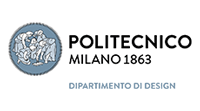
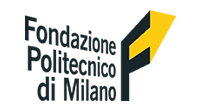
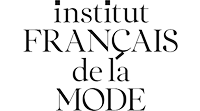

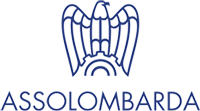
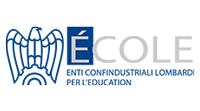
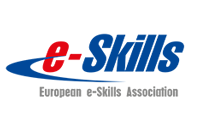
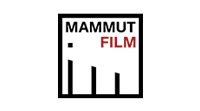
Intended Learning Outcomes
At the end of this MOOC, you will be able to:
- Understand the key concepts of data science, machine learning, and artificial intelligence, and analyze their impact on creativity and competitiveness in industries such as fashion and design. ( ESCO - Data science ) ( ESCO - fashion, interior and industrial design )
- Utilize natural language processing (NLP), sentiment analysis, and machine learning techniques to analyze social media content, and create effective visual representations of data, including geographical and hierarchical models. ( ESCO - Analyse big data ) ( Data mining ) ( ESCO - machine learning )
- Define the fundamentals of interactive narratives, assess their applications in contemporary design practices, and integrate them into creative projects within the fashion industry. ( ESCO - define brand identity ) ( ESCO - tell a story )
- Apply design methodologies and narrative tools to create engaging interactive storytelling experiences, considering audience engagement, gamification, and brand communication. ( design brand's online communication plan ) ( enable audience participation )
Prerequisites
No formal knowledge is required.
Activities
The forum of this MOOC is freely accessible and participation is not guided; you can use it to compare yourself with other participants, or to discuss course contents with them.
A Bibliography section is available, where you can find a list of resources that can help you in deepening the topics of the course.
Section outline
-
-
The first week focuses on data science and big data methods and technologies as a differentiation factor in terms of creativity and competitiveness.
In particular, you will learn how to analyze content produced by people in terms of text and images, how to make sense of it and how to understand human behavior and sentiment through automated large-scale analyses. The course presents the basics of Natural Language Processing (NLP), topic and sentiment analysis, and machine learning techniques applied to social media. -
The second week focuses on the visual representation of data and information, providing basic of theory and practice.
It will allow you to understand basic principles for making insightful data visualizations, as well as theoretical reference to deepen your understanding of the topic.
In particular you will learn how to create uncommon visualizations such as hierarchical visual models, distribution-based visual models, and geographical data visualizations. -
The third week introduces the contemporary use of interactive narratives and their state of the art. In doing so, the week will tackle:
- the fundamentals of Interactive Narratives, across literature and current trends (concepts, vocabulary, and practices);
- methodologies and tools to design Interactive Narratives, considering narrative entities and their functions;
- examples of narrative strategies within the fashion industry.
-
The fourth week aims at proposing a design methodology for developing interactive narrative projects. After the discussion of the role of the audience within the contemporary scenario, the lessons will introduce a set of narrative tools able to support the design activity. The week is structured as follow: 1) state of the art of narrative structures and audience engagement across media; 2) the presentation of a set of tools to support the design of interactive narrative projects for fashion and branding; 3) the discussion of paradigmatic examples.
-
-
Bibliography Page
-
Assessment
Your final grade for the course will be based on the results of your answers to the assessed quizzes. You have an unlimited number of attempts at each quiz, but you must wait 15 minutes before you can try again. You will have successfully completed the course if you score a total of 60% (or higher) in each of the assessed quizzes.
The maximum score possible for each quiz is given at the beginning of the quiz. You can view your score in the quiz on your last attempt or on the 'Grades' page.
Certificate
You can achieve a certificate in the form of an Open Badge for this course, if you obtain, at least, 60% of the total score in each one of the assessed quizzes and by filling in the final survey.
Once you have completed the required tasks, you will be able to access ‘Get the Open Badge’ and start issuing the badge. Instructions on how to access the badge will be sent to your e-mail address.
The Badge does not confer any academic credit, grade or degree.
Information about fees and access to materials
You can access the course completely online and absolutely free of charge.
Course faculty

Maresa Bertolo
Assistant Professor at ImagisLab, Design Department, Politecnico di Milano. Her research is mainly focused on Game Studies, in particular on games as mean and vehicle for social communication. She teaches Game Design e Computer Graphics at Scuola del Design, Politecnico di Milano.
She contributes to her research field with projects of Games for Social Change as well as with publications on books and conferences proceedings.

Marco Brambilla
Marco Brambilla is associate professor at Politecnico di Milano. He is active in research and innovation, both at industrial and academic level. His research interests include data science, software modeling languages and design patterns, crowdsourcing, social media monitoring, and big data analysis. He has been visiting researcher at CISCO, San Josè, and University of California, San Diego. He has been visiting professor at Dauphine University, Paris.
He is founder of the startup Fluxedo, focusing on social media analysis and Social engagement, and of the company WebRatio, devoted to software modeling tools for Web, Mobile and Business Process based software applications. He is author of various international books and research articles in journals and conferences, with over 250 papers. He is the main author of the OMG standard Interaction Flow Modeling Language. He participated in several European and international research projects.
He is associate editor of SIGMOD Records, Journal of Web Engineering, and Advances in Human-Computer Interactions.

Mariana Ciancia
PhD in Design, Mariana is junior researcher (Department of Design) and adjunct professor (School of Design and Università Cattolica del Sacro Cuore). Her research deals with new media and participatory culture, with the aim of understanding how multichannel phenomena (crossmedia and transmedia) are changing the processes of production, distribution and consumption of narrative environments.

Valeria Iannilli
Architect and Associate professor at Politecnico di Milano - Design Department, where she is part of the “Design and Innovation Cultures” research subsection. She is President of the Fashion Design Programs (Bachelor and MSc) at School of Design, Politecnico di Milano and co-founder of FIP|Fashion in Process, Design Research Laboratory of Design Department/Politecnico di Milano. Her research interests concern retail design processes as the expression of the identity of a company to promote the construction of an active dialogue with users’ communities.
She is expert of retail design and management of narrative processes as place of cultural exchange in “culture intensive” industries. She developed didactical and research projects for national and international institutions and author of international publications and consultant in didactic and research activities for Italian and foreign institutions and companies.

Ilaria Mariani
PhD in Design, Ilaria Mariani is adjunct professor (School of Design) and research fellow (Department of Design). She designs, investigates and lectures in complex interactive artefacts for communication, especially games (physical, digital and hybrid) and interactive narratives as systems for communication and social innovation. Her studies also focus on comprehending their impact on users.

Michele Mauri
From 2018 he is the scientific group of DensityDesign, a research lab focussed on the visual representation of complex phenomena through data and information. Within the laboratory he coordinates the research, the design and development of projects related to the visual communication of data and information, in particular for projects related to born-digital data and Digital Methods. He is one of the authors of RAWGraphs, an open-source platform for the creation of data visualisations. From 2017 he’s part of the Public Data Lab, an international group of researchers working on the development of innovative formats for the creation and use of public data. With his works he won three “Information is beautiful gold awards” in 2012, 2014 and 2016.
Contact details
If you have any enquiries about the course or if you need technical assistance please contact pok@polimi.it. For further information, see FAQ page.